The Ultimate David E. Kelley Ranking
-
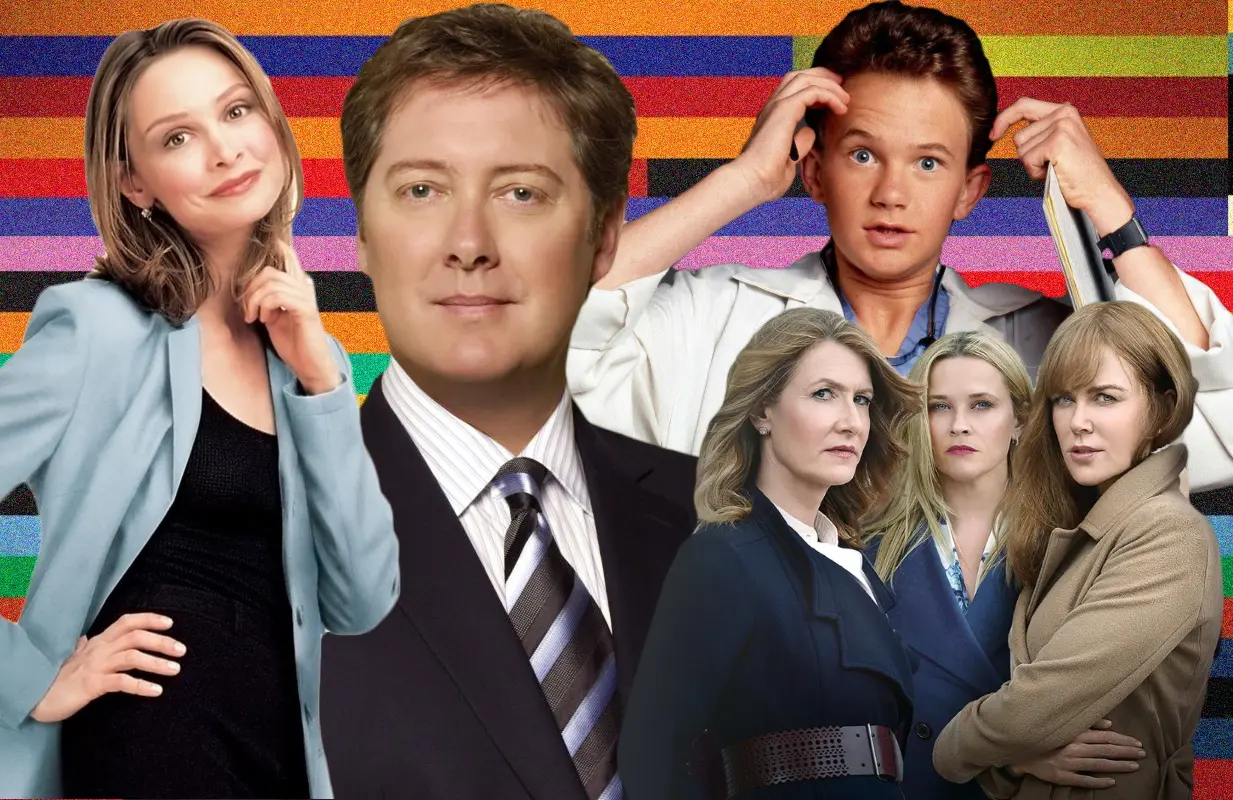
The long-awaited HBO limited series The Undoing is premiering this week. Starring Nicole Kidman as a wealthy and powerful woman whose marriage to Hugh Grant is rocked by the revelation of a well-concealed secret and a murder investigation, the six-part series is the latest project from all-star wrter/producer David E. Kelley, who has for decades made some of the buzziest — and sometimes best — shows on television.
Kelley's career in TV grew out of his earlier career as a lawyer, which should come as no surprise considering just how many of his shows have involved lawyers. For a time, during the late 1990s and early 2000s, Kelley had so many shows on TV that he seemed near inescapable. With two new Kelley shows coming our way — The Undoing on HBO and Big Sky on ABC — we thought we'd take a deep dive into Kelley's significant resumé and determine which of his shows (and movies!) rank as his very best. For this endeavor, we're including all of the shows and movies where Kelley had a role as either a writer or producer of some kind, but we're not counting any of the pilots that never made it to air (sorry, disastrous Wonder Woman… or perhaps you're welcome).
24. Ally*
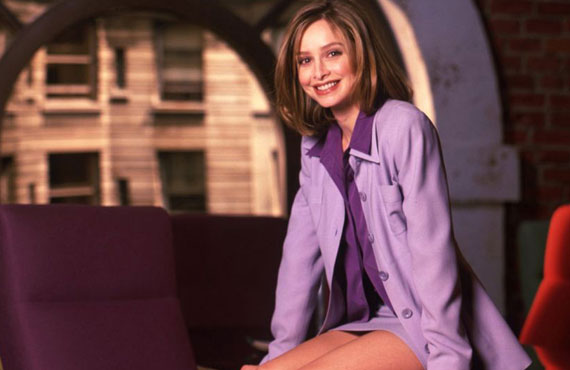
Year: 1999
Role: creator/writer/producerThere's an asterisk next to this show, and one could make a convincing argument that it shouldn't count as a separate entity. But hey, we didn't tell FOX to repackage episodes of its hit hour-long dramedy Ally McBeal as an abridged 30-minute "sitcom." It was an idea that was somehow both desperate and hubristic, and the fact that it failed spectacularly is no surprise. We'll get to Ally McBeal itself later in the list, but this bizarre non-show has to rank at the bottom.
23. The Law Firm
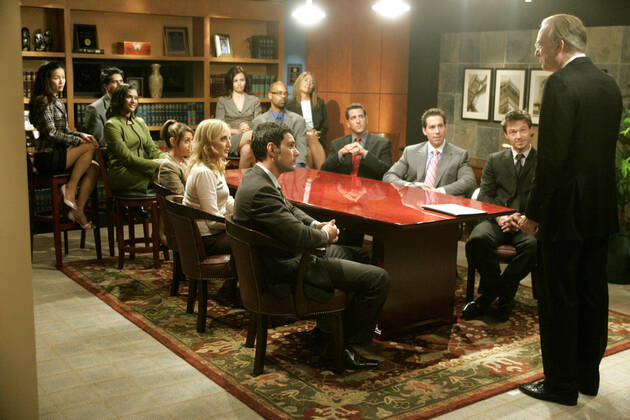
Year: 2005
Role: executive producerHere's a bad idea whose origins are incredibly easy to parse out. After NBC saw great success with The Apprentice in 2004, they took a bet that what American audiences were really into was reality television involving white-collar types moving up the professional ladder. Only this time with lawyers instead of businesspeople. And since it was a show about young lawyers on the make, of course David E. Kelley was an executive producer. Airing initially on NBC, the show only lasted two episodes before the remaining six were burned off on Bravo. It's now an entirely forgotten corner of Aughts reality TV.
22. From the Hip
Year: 1987
Role: writerJust for fun, attorney David E. Kelley wrote a screenplay in the mid-80s about a young lawyer in over his head on a murder case. That movie got made, starring Judd Nelson, John Hurt, and Elizabeth Perkins. Critics hated it, and Nelson, trying to emerge from his Brat Pack roots, got smacked down with a Razzie nomination. On the bright side, there was nowhere to go but up for Kelley's career.
21. The Brotherhood of Poland, New Hampshire
Year: 2003
Role: creator/writer/producerThe mid-Aughts were a tough time for Kelley, as he struggled to capitalize on the success of his Ally McBeal/The Practice/Boston Public run. Part of the problem may have just been David E. Kelley overkill. Part of it, in the case of The Brotherhood of Poland, New Hampshire, was that a quirk-forward drama about the goings on in a frigid small town reminded people of another low-rated series that they liked a lot better: Northen Exposure. Despite a cast that included Randy Quaid, John Carroll Lynch, Mare Winningham, and Chris Penn, CBS axed the show after only five episodes.
20. The Wedding Bells
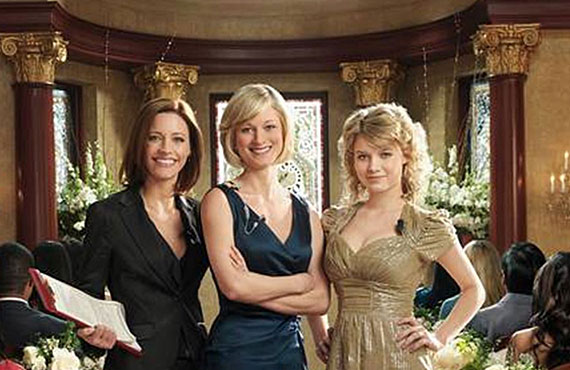
Year: 2007
Role: creator/writer/producerin 2007, FOX wanted a show about wedding planners, and Kelley already had an old pilot script for a show about sister wedding planners. Hence Wedding Bells. The gag here was that the series was about sisters who were all wedding planners, and their last name was "Bell," so … Wedding Bells. Teri Polo and KaDee Strickland played two of the sisters, and the cast included Missi Pyle and Sherri Shepherd, but it failed to find audience, and it was canned after, again, five episodes.
19. Girls Club
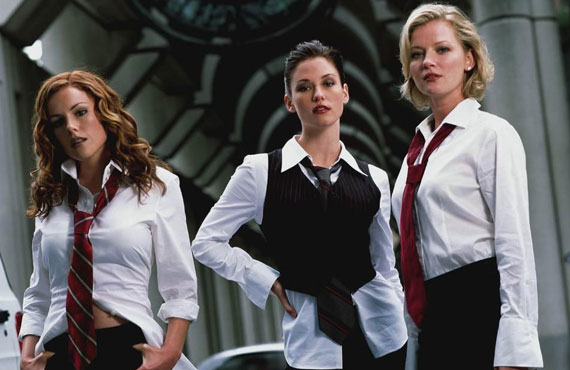
Year: 2002
Role: creator/writer/producerIf you're thinking how rough it is that Kelley had two shows cancelled after only five episodes, consider the fate of poor Girls Club. After a ton of fanfare heralding this series about a trio of young women (Gretchen Mol, Kathleen Robertson, and Chyler Leigh) breaking into the boys-club profession of law as the next Ally McBeal, low ratings and savage reviews caused FOX to give it the hook after only two episodes. It's ranked ranked ahead of Poland, NH and Wedding Bells for its infamy alone.
18. Mr. Mercedes
Year: 2017-19
Role: creator/writer/producerBased on a trio of Stephen King crime novels, Mr. Mercedes aired for three seasons (and was picked up for a fourth) by the obscure AT&T-backed Audience Network. Despite its niche position in greater pop culture, the series had an amazing cast, including Brendan Gleeson, Harry Treadaway (who was cast in his role after the untimely death of Anton Yelchin), Holland Taylor, Jharrel Jerome, and Mary-Louise Parker, with episodes directed by Lost's Jack Bender. The show was well reviewed, but it wasn't enough to keep Audience Network from folding before Season 4. All three produced seasons are now available on Peacock. Fun fact: the character of Holly Gibney, played in this show by Succession's Justine Lupe, is the main character in King's The Outsider, adapted for HBO last year.
17. Harry's Law
Year: 2011-12
Role: creator/writer/producerThe thing about Harry's Law is that it is simultaneously both hard to believe the show existed at all and that it only lasted for two seasons, one of which was a short season because it was a mid-year replacement. Somehow, in the span of just 34 episodes, Harry's Law seemed to garner Kathy Bates — who starred as Harry, a rough and tumble lawyer who runs a ragtag law firm out of a shoe shop — approximately 75 Emmy nominations. (She was nominated twice, plus one SAG nomination.) It's not a great show, and more than anything, it's presence in the Prestige TV era stood out like a sore thumb, but regardless, it proved that David E. Kelley could still make a (momentary, moderate) hit show after all those years.
16. Monday Mornings
Year: 2013
Role: creator/writer/producerKelley's first non-reality series for cable was this TNT-produced medical drama which ran for one complete season. The show was set at a hospital in Portland, Oregon, and starred Alfred Molina as a hard-nosed chief of staff who presided over weekly staff meetings where the surgeons would have to defend their work and get hammered for their mistakes. Not a bad idea for a series, and definitely as far away from Kelley's quirky reputation as any of his shows get. The cast, typically, was excellent, including Molina, Ving Rhames, Bill Irwin, Jamie Bamber, and Sarayu Rao, but it never made it to a second season.
15. Snoops
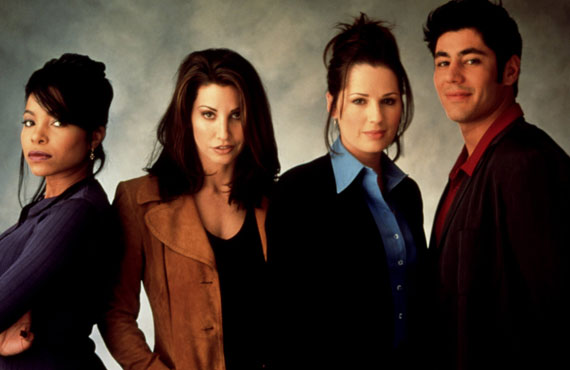
Year: 1999
Role: creator/writer/producerPoor Snoops. Released at the height of Ally/Practice mania, Snoops was poised to ride the wave of David E. Kelley's success. Rather than focus on young, sexy lawyers, this was a show about private detectives. Young, sexy private detectives, played by Gina Gershon, Paula Jai Parker, Danny Nucci, and Paula Marshall, the latter of whom was, unfortunately, in the middle of earning her "showkiller" reputation, since all of her shows inevitably met early cancellation. This was definitely one of them, as ABC nixed it after only ten episodes.
14. Lake Placid
Year: 1999
Role: writer/producer1999 was a hell of a year for fearsome creatures from the watery depths. Deep Blue Sea gave us hyper-intelligent sharks that terrorized the hubristic scientists who created them. Meanwhile, David E. Kelley had a screenplay about a giant killer crocodile that simply had to see the light of day. Lake Placid wasn't good. Roger Ebert definitely gave it a thumbs down. So why does it rank ahead of Girls Club and Snoops and Poland, New Hampshire and the rest of DEK's mid-aughts misfires? Because people remember it. David E. Kelley wrote a movie about a man-eating crocodile where Betty White says, "If I had a dick, this is where I'd tell you to suck it," and we should celebrate that.
13. The Crazy Ones
Year: 2013-14
Role: creator/writer/producerIt's hard not to get sad thinking about the missed opportunity of The Crazy Ones, and not just because it was an offbeat show with some interesting potential. The show starred Sarah Michelle Gellar and Robin Williams as a daughter and father who were in the advertising business together. He was the kooky one, she was straightlaced and struggled to keep him in line. Sadly, only a few months after after CBS pulled the plug at the end of Season 1, Robin Williams took his own life, making this his last television role.
12. Mystery, Alaska
Year: 1999
Role: co-writer/producerA ragtag hockey team in small-town Alaska gets the chance to play a game against the New York Rangers. It's a fantastical premise that yields a charming enough film. An unlikely vehicle for Russell Crowe the year before he made Gladiator and for Burt Reynolds right after his Boogie Nights renaissance.
11. To Gillian on Her 37th Birthday
Year: 1996
Role: writer/producerTo date, this is the only project where David E. Kelley and his wife, Michelle Pfeiffer, are both credited. Kelley wrote the script, about a widower (Peter Gallagher) whokeeps interacting with visions of his late wife (Pfieffer) at their vacation home. It's the ultimate Wife Guy move, to write a movie about the immortal, luminous beauty of your wife and how her husband will never be able to let go of her. Or maybe it's weird to write a movie where your wife plays a dead woman? Regardless, Pfeiffer is at her most beautiful, and the father/daughter relationship between Gallagher and Claire Danes isn't bad.
10. Goliath
Year: 2016-present
Role: creator/writer/producerThis show — about a run-down lawyer, played by Billy Bob Thornton, trying to get his life and career back in order — was Kelley's first foray into streaming, and it went surprisingly well. It's run for three seasons, has been renewed for a fourth (and final) stretch, and Billy Bob Thornton won a Golden Globe for his trouble in 2017.
9. Boston Legal
Year: 2004-08
Role: creator/writer/producerToward the end of The Practice's 8-season run, the show landed on James Spader to take over as the show's lead lawyer. It worked out so well that they didn't want to stop the fun when The Practice wrapped up, and thus the spin-off Boston Legal was born. The show went for 100 episodes, won two Emmys for Spader (including one over James Gandolfini for the final Sopranos season), and one for William Shatner. It's perhaps the greatest of all of Kelley's TV flexes because it was a show no one was clamoring for, and he turned it into a hit. And he did so by taking the heavy dramatics of The Practice and turning it into absurd semi-comedy.
8. Doogie Howser, M.D.
Year: 1989-93
Role: creator/writer/producerYes, the show that convinced America that a teenage boy could be a doctor, and that Neil Patrick Harris could be a star. After Kelley got his start on Stephen Bochco's L.A. Law, the two teamed up to create this light ABC drama about a teen prodigy who became a doctor while his pals are still in high school. Doogie was as much a go-to comedic punchline as it was a show people were invested in, but that's mostly because "Doogie" sounds funny. The show itself was sweet and likeable, and it's telling about the bygone era of '90s TV that when ABC decided to go with another show about a young doctor in The Good Doctor they weighed it down with a whole lot of overwrought drama.
7. Boston Public
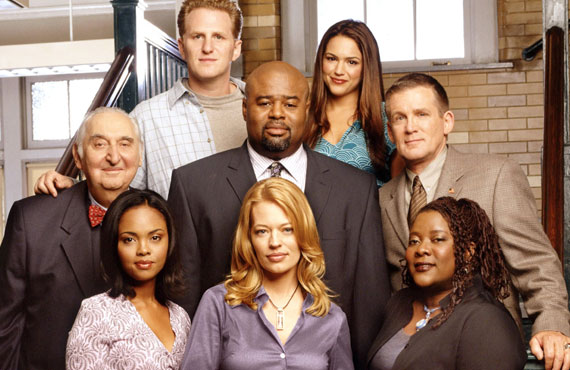
Year: 2000-04
Role: creator/writer/producerBy the year 2000, David E. Kelley had just scored with back-to-back shows about lawyers set in Boston. Clearly, he was on a roll, and when it came time to launch a third show, straying from ol' Beantown seemed rather foolish. But rather than another lawyer show, this time Kelley set his show in a public school and centered it on the faculty, a mixture of young idealists, stubborn old cranks, and every quirky and dramatic complication you could think of. The cast was stacked — including Nicky Katt, Loretta Devine, Rashida Jones, and future Oscar-winning writer/director Tom McCarthy — and included a few of Kelley's old collaborators like Kathy Baker and Fyvush Finkel. It never quite hit the cultural sweet spot the way his other two Boston-set shows did, but it was a compelling show nonetheless.
6. Chicago Hope
Year: 1994-2000
Role: creator/writer/producerIn the fall of 1994, the television industry was rocked by the debut of a new medical drama set at a hospital in the heart of Chicago. That show, of course, was NBC's ER. Over on CBS, David E. Kelley had the misfortune of helming the other Chicago-set medical drama, the one with stars people had already heard of like Mandy Patinkin and Hector Elizondo. Insanely, CBS put this one up in the same time slot as ER, and it got so thoroughly trounced not just in ratings but in cultural cachet that it's hard to remember the fact that it stayed afloat and lasted for six seasons. Though both Kelley and Patinkin would leave during Season 2. In later seasons, cast members like Christine Lahti and Mark Harmon hopped aboard (Lahti won a Golden Globe for her performance and was famously in the bathroom when her name was called), and the show performed admirably. In another reality where ER didn't exist, we might remember this show a lot more fondly.
5. Ally McBeal
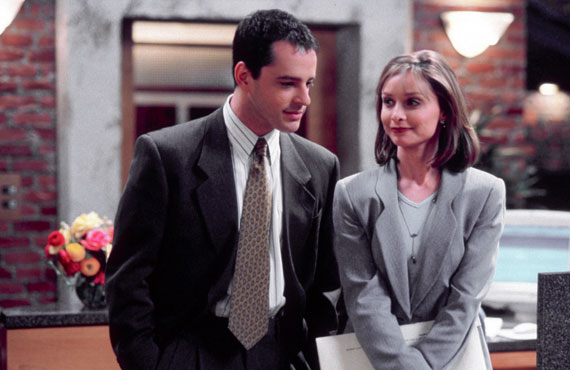
Year: 1997-2002
Role: creator/writer/producerIf you were at all engaged with popular culture in 1997, you remember the debut of Ally McBeal. Not necessarily the premiere episode, although it was certainly a strong and stylistic statement that David E. Kelley was not delivering the usual lawyer show. But the national uproar that arose over the idea of a show about a female lawyer who was falling apart over a man and who practiced law in very short miniskirts. And, look, maybe Ally McBeal killed feminism, but it also gave us a dancing baby, launched the TV careers of Jane Krakowski, Portia De Rossi, and Lucy Liu, was a weekly showcase for musical performances, and helped network comedy break free of the stale sitcom format. It also happens to be a deeeeeeply fascinating rewatch if you care to seek it out (it's streaming on Hulu).
4. Picket Fences
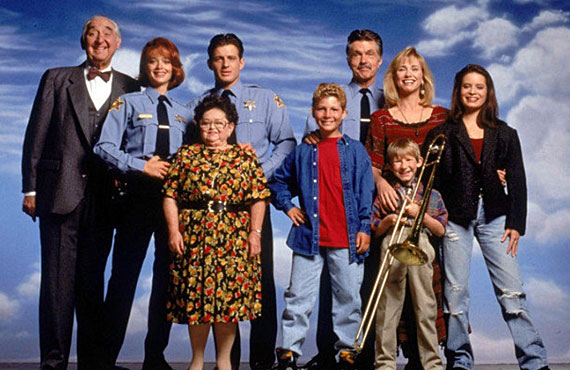
Year: 1992-96
Role: creator/writer/producerQuirky small towns were such a thing in the early 1990s, what with Northern Exposure's Alaskan adventures and Twin Peaks creeping about in the Pacific Northwest. David E. Kelley capitalized on the trend with Picket Fences, an ensemble drama set in the fictional Rome, Wisconsin. The show centered on the town's sheriff (Tom Skerritt) and his wife, the town doctor (Kathy Baker), but the deep roster of townspeople helped make up the tapestry. Many episodes focused on a court proceeding, featuring the town's quirky lawyer (Fyvush Finkel) and good-hearted judge (Ray Walston). The show was never a ratings bonanza, but critics adored it, and it won a bunch of Emmys: three for Baker, two for Walston, one each for Skerritt and Finkel, and two for Outstanding Drama.
3. L.A. Law
Year: 1986-92
Role: writer/producerStephen Bochco hired David E. Kelley to work on his new legal drama for NBC due to Kelley's legal background, and Kelley soon climbed up the ladder from writer to producer and, by Season 4 when Bochco decided to step down, Kelley took over as the show's executive producer. The partnership resulted in the show's best years, as L.A. Law was a smash hit and redefined the network legal series. This was a sexy, soapy, outrageous legal show, full of antiheroes and hot-button issues, not to mention launching the TV careers of Jimmy Smits and Blair Underwood, among others. It won the Emmy for Outstanding Drama Series in five of its first six seasons, and it anchored NBC's Thursday night lineup during one of its greatest eras.
2. The Practice
Year: 1996-2004
Role: creator/writer/producerIf Ally McBeal was the sexy, silly, heavily quirky side of Kelley's late-'90s creative output, The Practice was its hard-nosed cousin. Focusing on a small but ferocious band of Boston lawyers who took whatever cases were available to them and did whatever it took to win, The Practice worked some incredible drama, especially in its early years. The central ensemble — Dylan McDermott, Steve Harris, Kelli Williams, Michael Badalucco, Camryn Manheim, and LisaGay Hamilton — were fantastic together, and as the show grew from an unheralded mid-season replacement to one of ABC's prime dramas, the caliber of guest stars got better and better. And while the show couldn't stay at peak quality for all of its eight seasons, for a while there The Practice ranked among TV's best and most compelling dramas, plus it was the beneficiary of three of the biggest Emmy upsets of the '90s, with wins for Outstanding Drama and Supporting Actress for Camryn Manheim in 1998, followed by Holland Taylor upsetting Nancy Marchand for The Sopranos' first season in 1999.
1. Big Little Lies
Year: 2017-19
Role: creator/writer/producerAdmittedly, it's a bit strange to rank Big Little Lies as the greatest David E. Kelley TV series, given just how many other people seem to be more visibly tied to its authorship, including the novel's actual author, Lianne Moriarty, the director Jean-Marc Valée, and producer Reese Witherspoon. And that's not even getting into the general mess that was the second season, with the reins being taken away from Andrea Arnold, and the resulting season taking a nosedive in quality. Is it fair to just pretend that second season never happened and just deal with Season 1? Because we are. Season 1 of Big Little Lies was some of the best TV we've seen this decade, and a signal that David E. Kelley, in whatever capacity, still has it in him to rise to the top of the TV mountain. The show's blend of comedy and drama recalled the best work of Kelley's long career, and his ability to pull in a top-notch cast all working at their peak remains on point.
The Undoing, penned by David E Kelly and directed by Susanne Bier, premieres Sunday October 25 at 9:00 PM ET on HBO.
Joe Reid is the senior writer at Primetimer and co-host of the This Had Oscar Buzz podcast. His work has appeared in Decider, NPR, HuffPost, The Atlantic, Slate, Polygon, Vanity Fair, Vulture, The A.V. Club and more.
TOPICS: David E. Kelley, Ally McBeal, Big Little Lies, Boston Public, The Crazy Ones, Doogie Howser, M.D., Goliath, L.A. Law, Mr. Mercedes, Picket Fences, The Practice, The Undoing